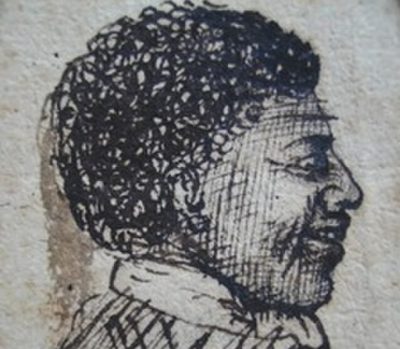Famous People of African Heritage: Anton W. Amo, Germany
Anton Wilhelm Amo: Africa’s First European Philosopher
Anton Wilhelm Amo (c. 1703–c. 1759) broke boundaries in 18th-century Europe. Born in Axim, present-day Ghana, he rose from obscure origins to become the first African-born scholar to earn a European doctorate and teach at German universities. His life reshaped views on intellect, race, and Enlightenment thought.
From Africa to Europe
Amo was born into the Nzema people near Axim. As a child between the ages 3 and 5, he was taken either by slave raiders or missionaries to the Dutch Gold Coast. Brought to the Dutch Republic, he was gifted to Duke Anton Ulrich of Braunschweig-Wolfenbüttel.
The duke ensured Amo received a broad education. He learned Latin, Greek, Hebrew, French, German, and Dutch. Amo attended the Wolfenbüttel Ritter-Akademie and later studied law and philosophy at Halle University.
Academic Achievements
In 1729, Amo wrote a legal dissertation titled *De jure Maurorum in Europa*, on the rights of moors in Europe. A year later, he earned his Doctor of Philosophy at Wittenberg.
He became Privatdozent at Halle in 1736 and taught philosophy in Jena by 1738. His major works include:
- 1734: De Humanae Mentis Apatheia, arguing the mind doesn’t sense, laying the groundwork for mind–body dualism
- 1738: Treatise on the Art of Philosophising Soberly and Accurately, defending rational thought against dogma
Enlightenment Arena & Return Home
Amo thrived until 1740 when shifting cultural and intellectual climates turned hostile. Friends of Enlightenment ideas lost influence. Amo faced ridicule and slander in the Halle theater, prompting his return to Africa around 1747
He settled near his birthplace and later at Fort San Sebastian in Shama, Ghana. Accounts hint he lived as an elder or sage until his death around 1759.
Legacy and Recognition
Today, Amo is celebrated as a trailblazing scholar:
- A **2020 Google Doodle** honored him on October 10
- Germany renamed a Stuttgart square and proposed renaming Berlin’s Mohrenstraße to Anton-Wilhelm-Amo-Straße in 2020–2023
- Museum exhibitions in 2024 planned in Halle and Wittenberg spotlight his life
Why Amo Matters
- Philosophical Impact: Amo critiqued Cartesian dualism, shaping Enlightenment debates on mind and body.
- Representation and Diversity: He kept his African name, adding “Guinea-Africano,” challenging Eurocentric academia.
- Intellectual Role Model: His work laid the foundations for inclusive scholarship, inspiring today’s philosophers and historians.
Lessons from Amo’s Life
Amo’s journey illustrates the power of intellect over prejudice. He transcended origins to join Europe’s most prestigious academic circles. When faced with backlash, he returned home on his terms, an act of dignity and self-respect.
His life continues to challenge us: Who belongs in the history of ideas? How do we value diverse voices? Amo’s legacy urges us to rethink old narratives and celebrate forgotten pioneers.
Anton Wilhelm Amo stands as a testament to resilience and brilliance. From Axim to Halle, his story enriches global history. Feelnubia honors his memory as a beacon of empowerment, intellect, and cross-cultural legacy.
Read more about the global impact of Africans in diaspora here.

